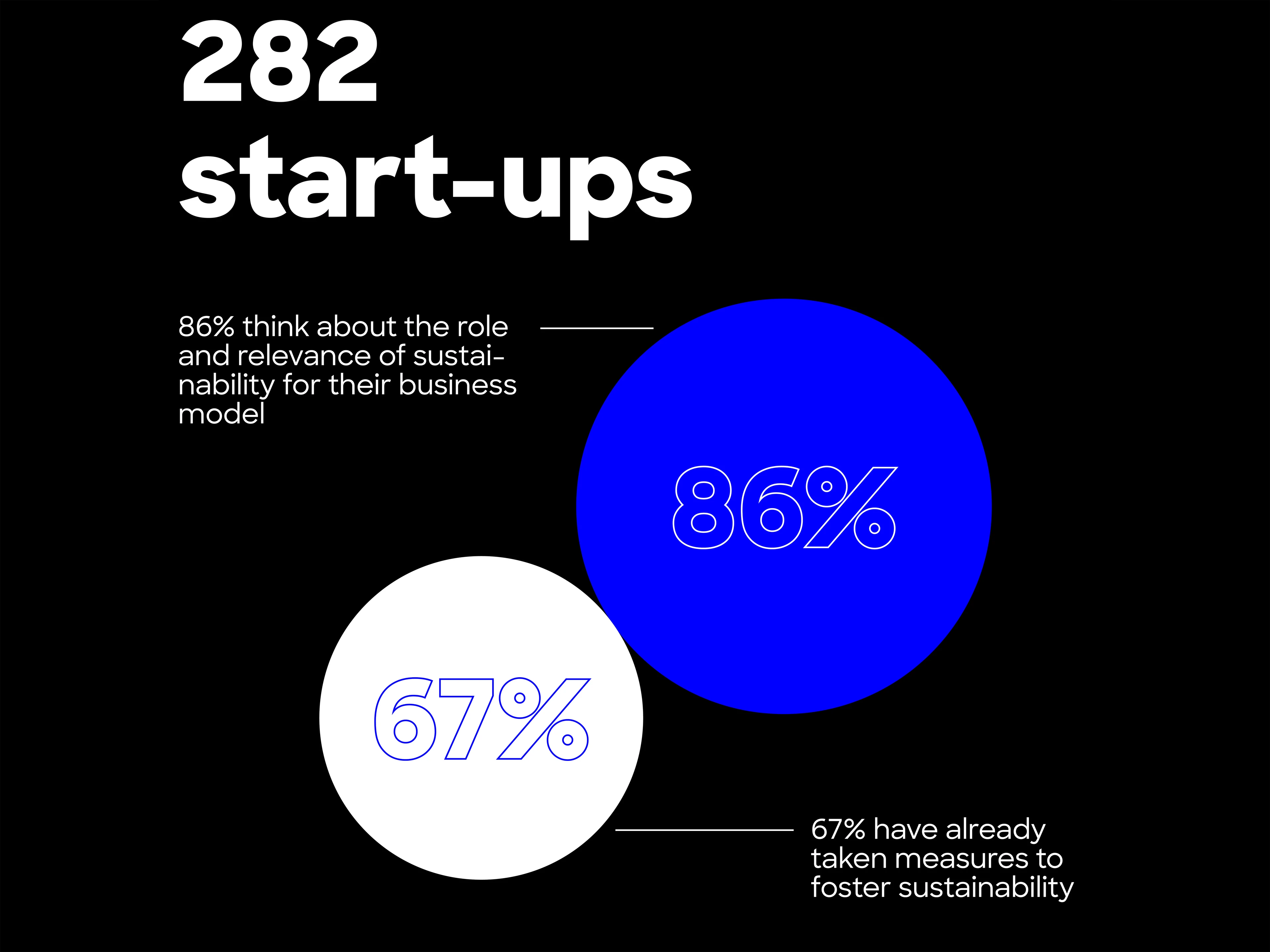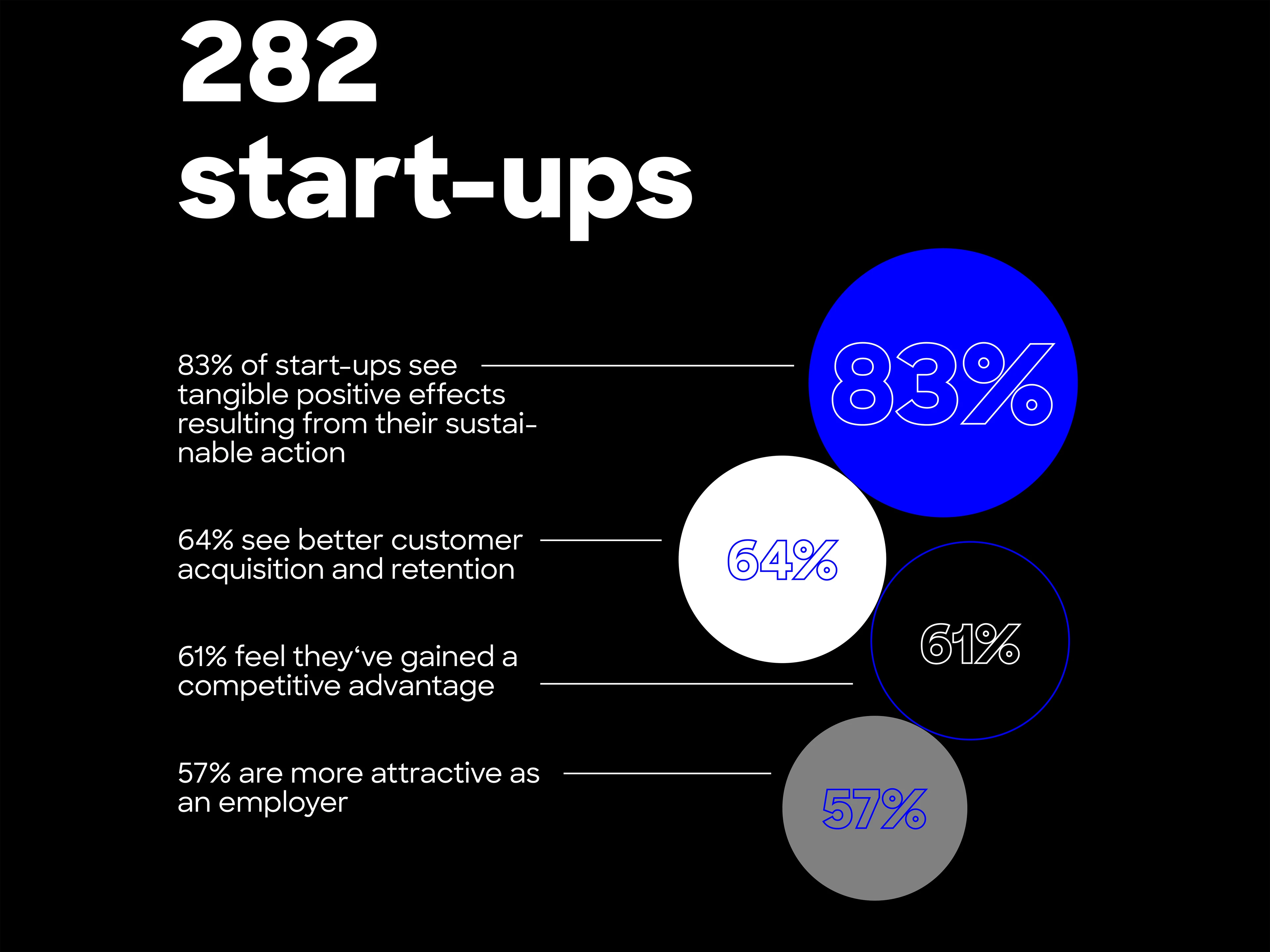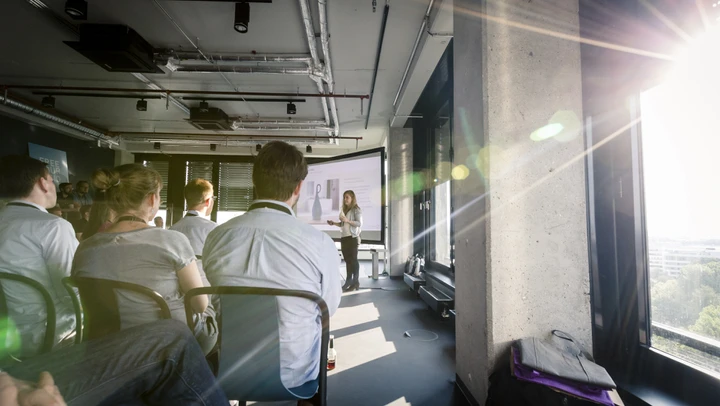
The topic of climate protection is finding a most fertile context in the start-up scene. This raises hopes for a real social change, because it is precisely here that effective products and services are born, that could counteract environmental pollution. TechFounders, the Accelerator program of UnternehmerTUM, and the sustainability consultancy akzente have conducted the Europe-wide online survey „Sustainability in Startups“ to find out how important climate targets are for the start-up scene. According to the survey, sustainability is a priority for around 90 percent of start-ups.
While the issue of sustainability has been prioritised to varying degrees by societies and politicians in recent decades, it has been be the subject of serious debate again since 2019 with Greta. It is thanks to her, among other things, that companies and governments around the world are redefining their climate targets, even though there is still a long way to go. In Germany, the new initiative "Leaders for Climate Action" is calling on digital companies to reduce their CO2 emissions, promote the expansion of renewable energies and promote new "green" technologies.
But how do start-ups see the topic and what influence does it have on their business creation? What advantages do young companies have from sustainability measures and what are the obstacles they face? With the Europe-wide online survey "Sustainability in Start-ups", TechFounders and akzente investigated these questions - with impressive results.
Sustainability has finally become a serious business opportunity for companies
Thomas Melde, Managing Partner at akzente
"Sustainability has finally become a serious business opportunity for companies - no start-up, no matter what industry, can afford today not to consider the question of the future viability of its business model against the background of global ecological and social challenges," explains Thomas Melde, Managing Partner at akzente.
A total of 282 European start-ups from various sectors took part in the online survey between February and March 2020, 87 percent of them were founded after 2015. It showed that 86 percent of the start-ups are already thinking about the benefits for people and the environment when developing their business model - also in response to expectations within the team and future customers. Two thirds of the young companies surveyed are even already actively working on sustainability issues. This trend is also confirmed - albeit slowly - in financing: venture capital is also increasingly flowing into sustainable innovations, but at only 26 percent, the rate is much slower.


It is interesting to see how founders implement sustainable goals: most start with the most obvious, the optimization of their business processes (64 percent), such as purchasing green energy, optimizing logistics, reducing water consumption, waste and resources in general. Cost savings are also a strong driver here.
Nevertheless, the start-ups are facing a number of challenges in terms of motivation: In order to professionally integrate the topic of sustainability into the business model, there is still a great lack of guidance and proven instructions.
What are the reasons given by start-ups that are not (yet) concerned with their own climate goals? 33 percent consider themselves to be too small, while 29 percent have not had the topic on their business agenda at all.
"Our survey shows that the majority of the start-ups surveyed are on the right track. We want to provide them with the best possible support. It is also important to raise this awareness among venture capital companies. With these initial findings, we hope to inspire founders and venture capitalists alike to become active," says Miki Yokoyama, COO at TechFounders. "Due to the corona crisis, some start-ups are currently under high pressure and are facing new challenges that even extend to securing their existence," adds Thomas Melde. "However, the reconstruction, further digitalization and transformation of the economy will be much more characterized by sustainability."
You want to know more? You can download the whitepaper "Sustainability in Startups" here.























